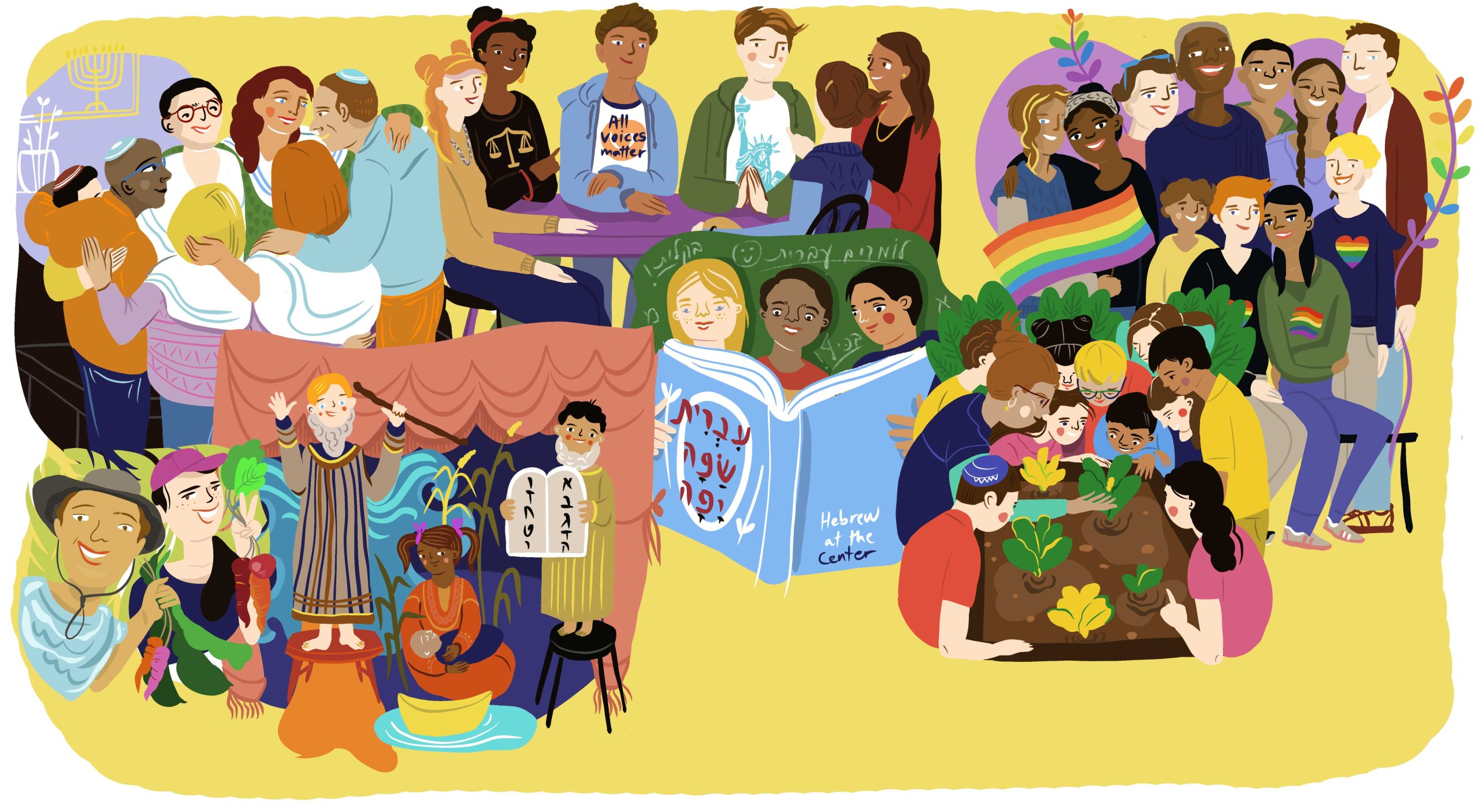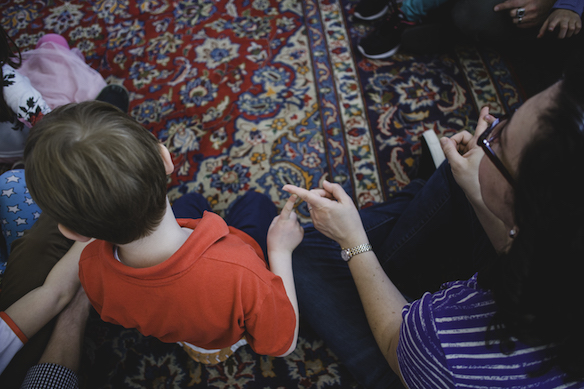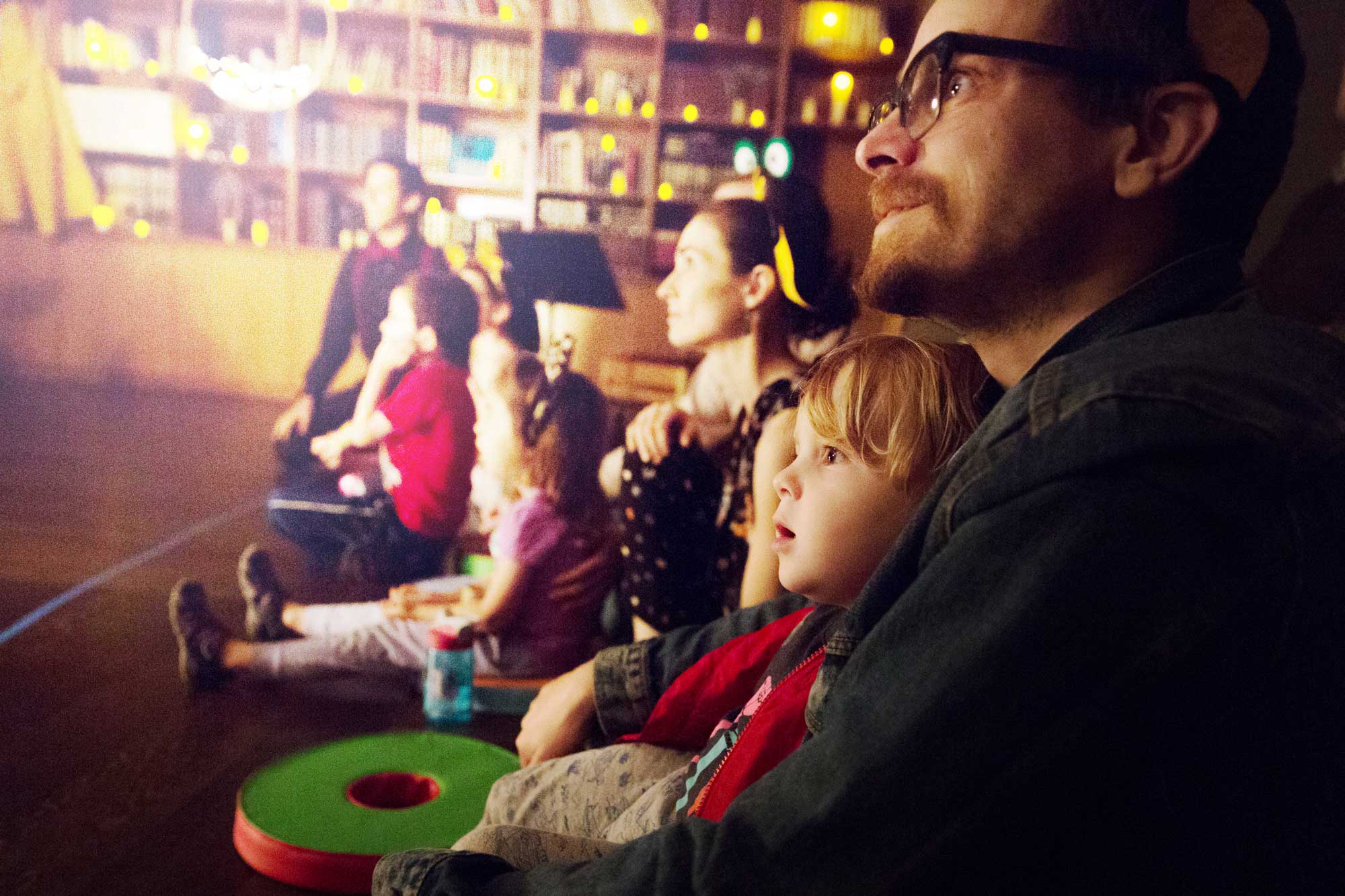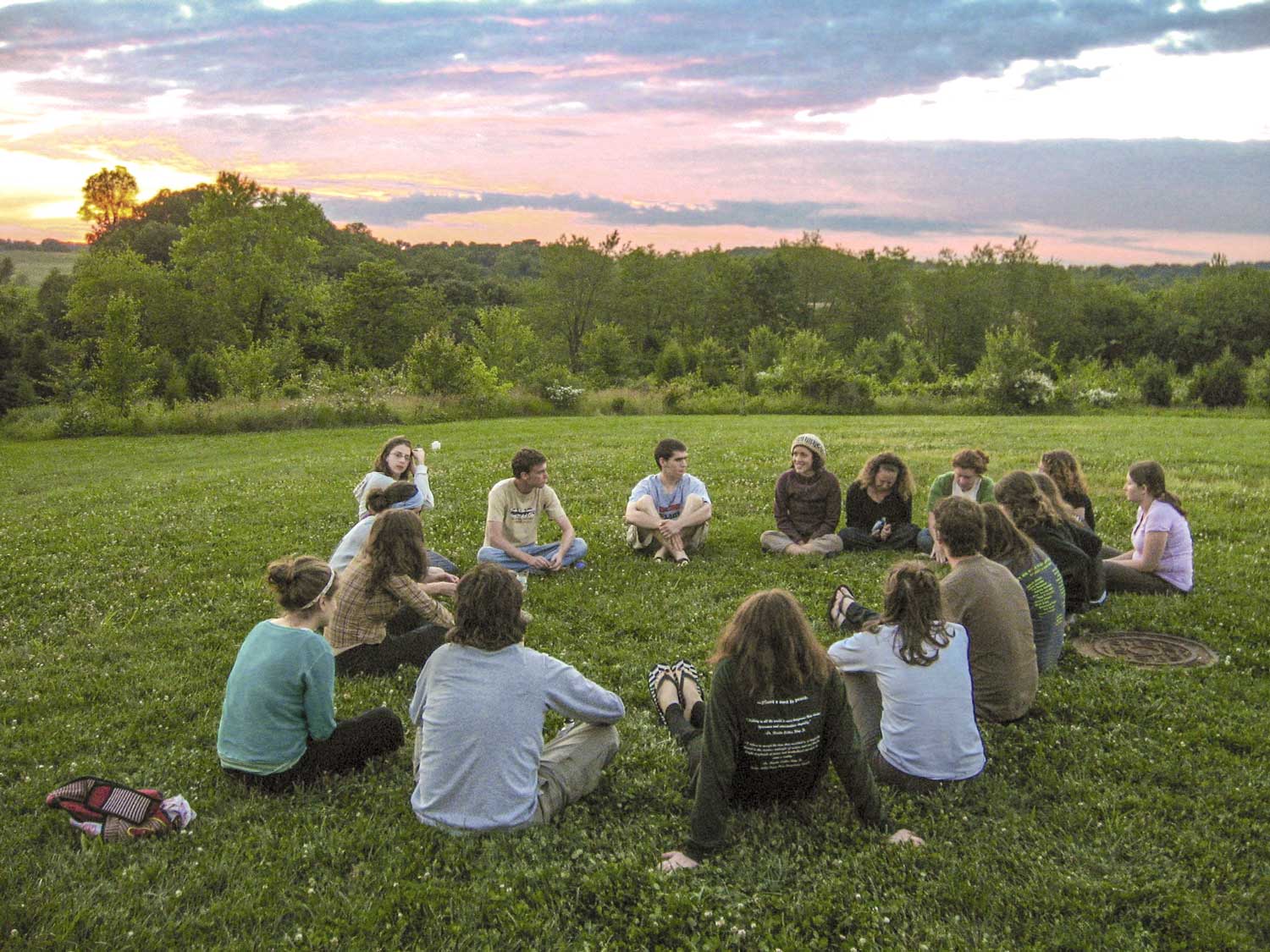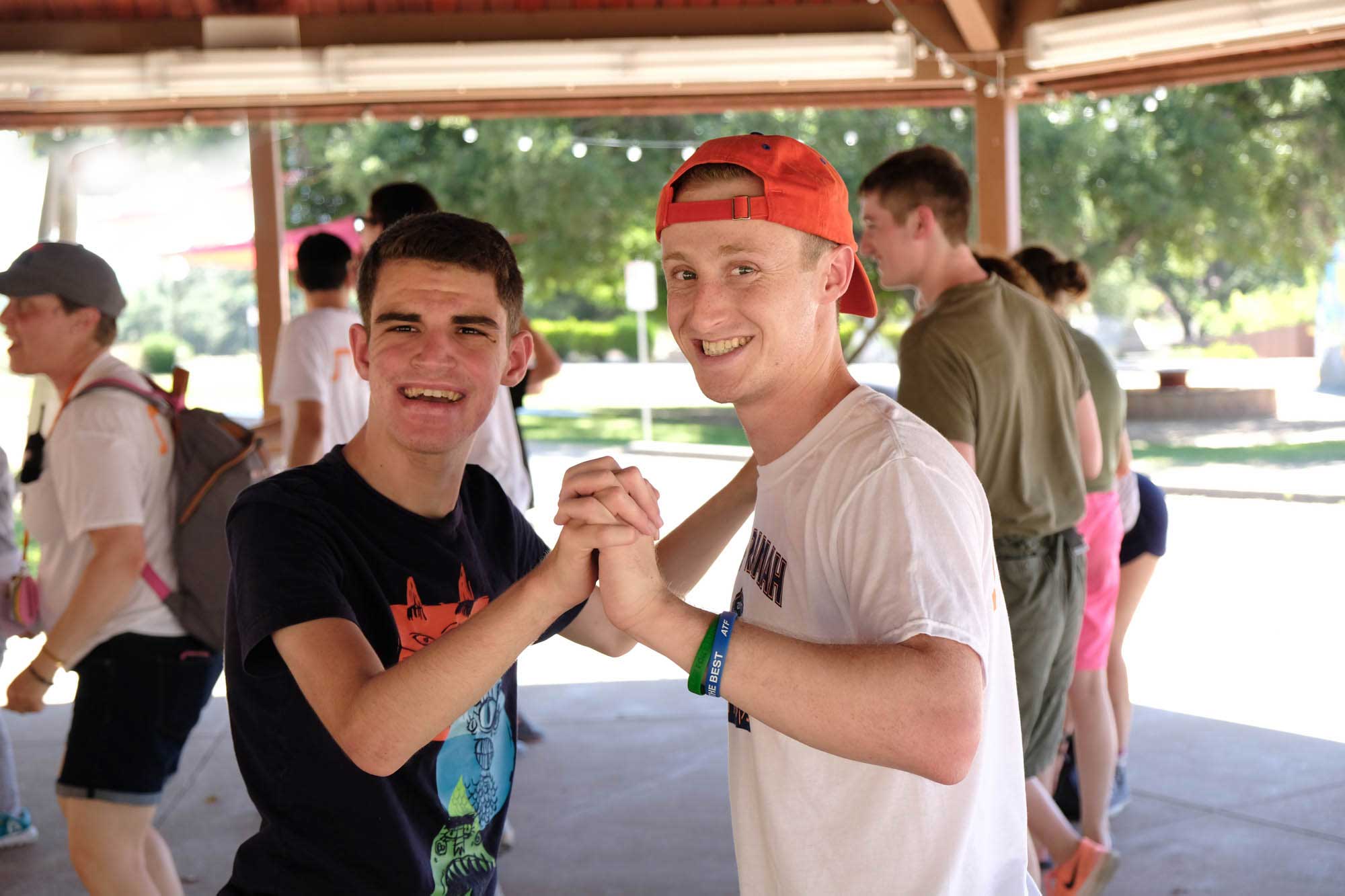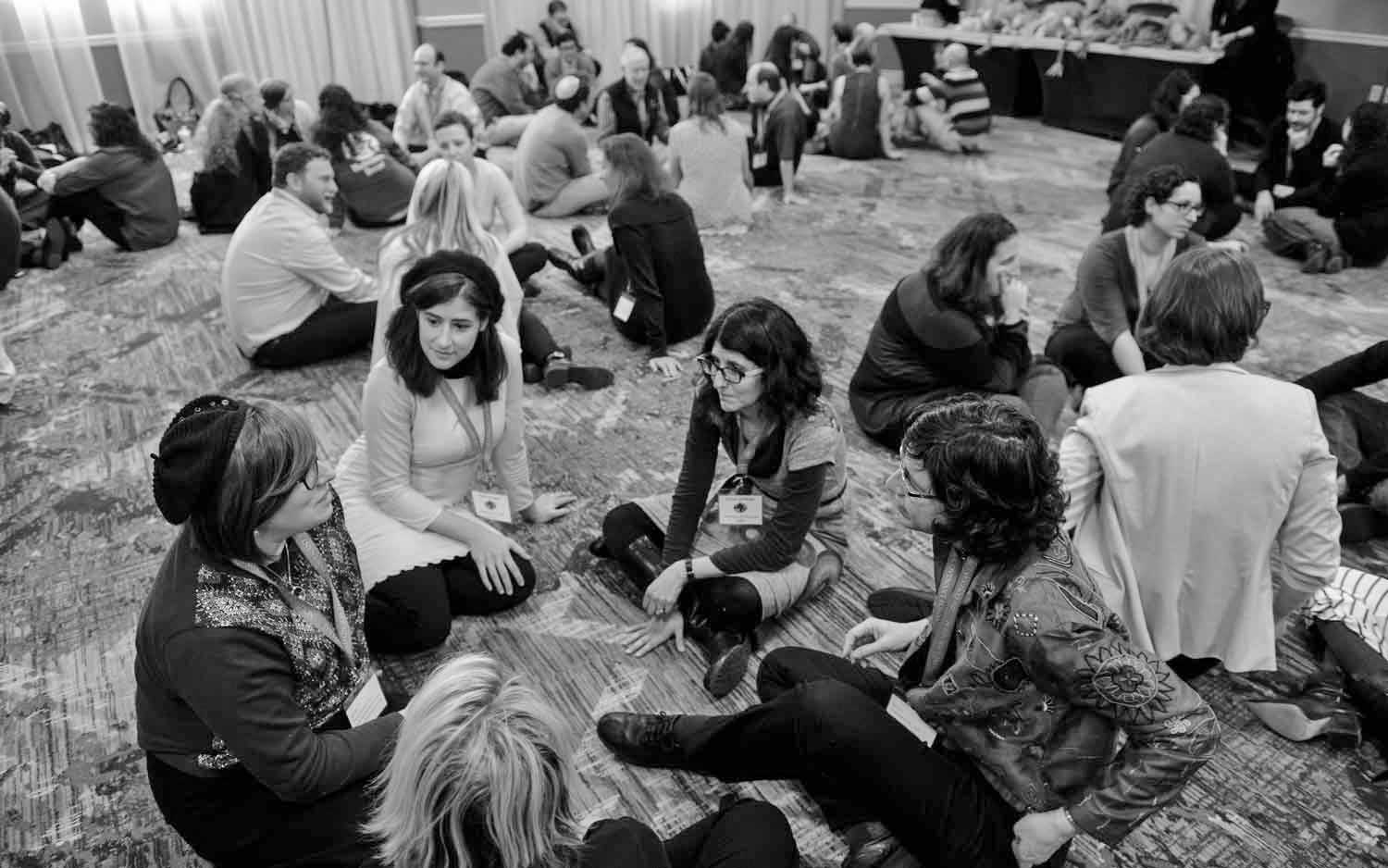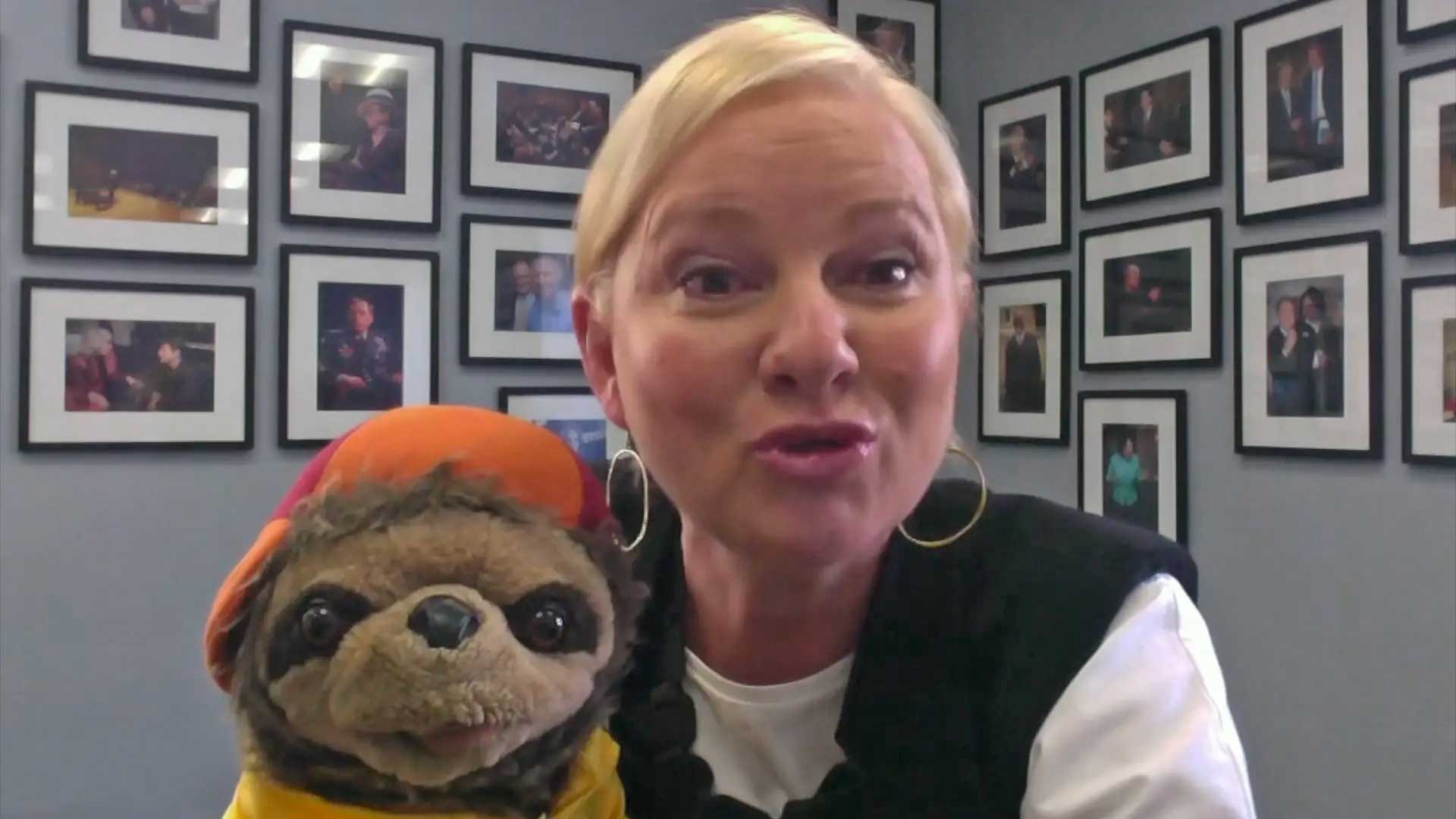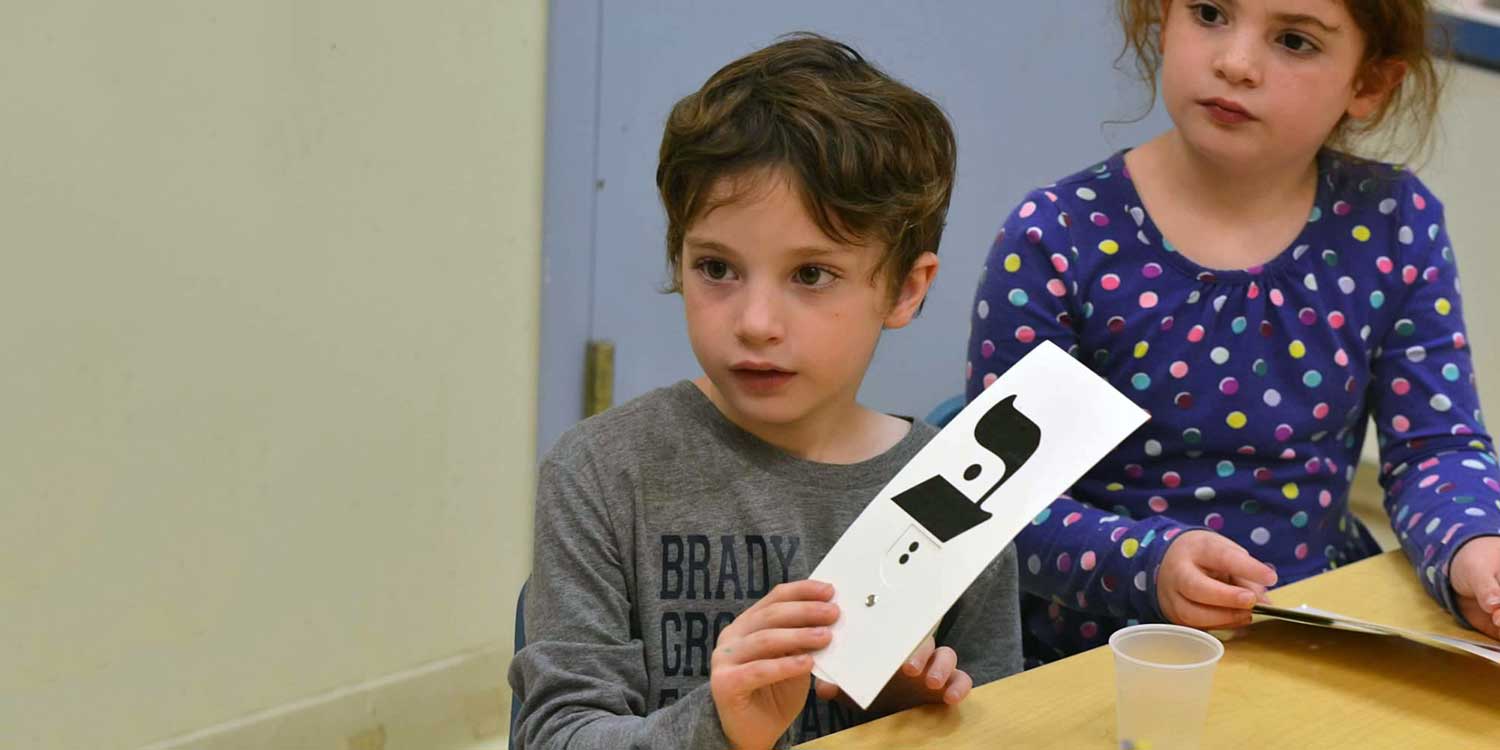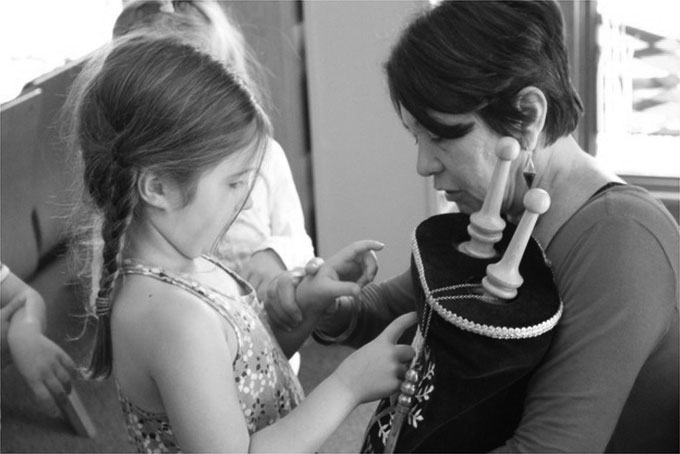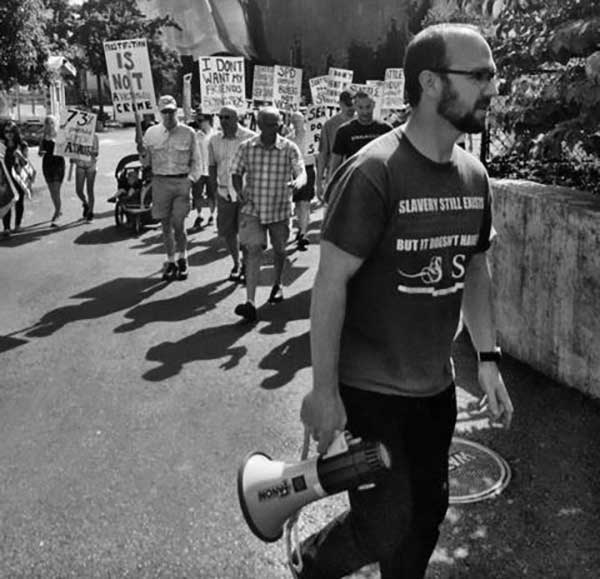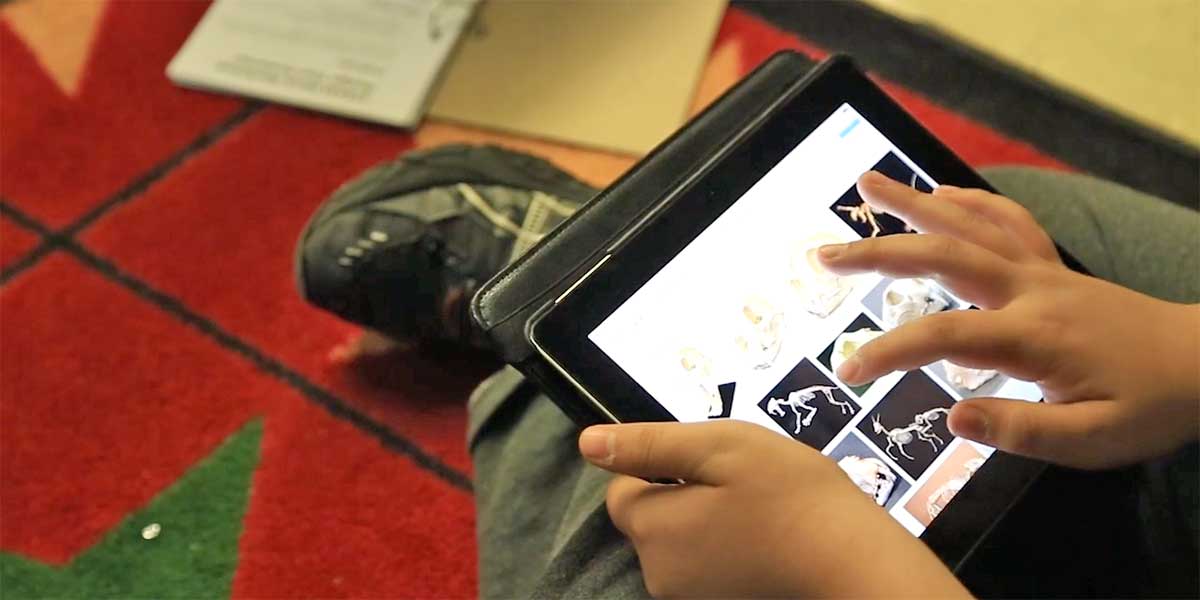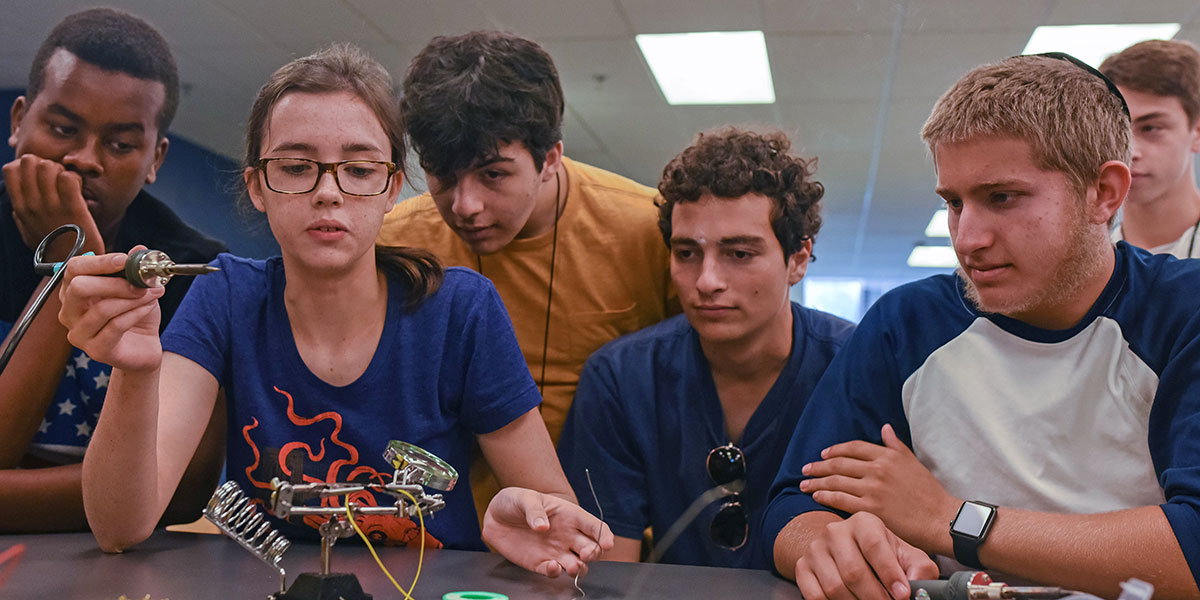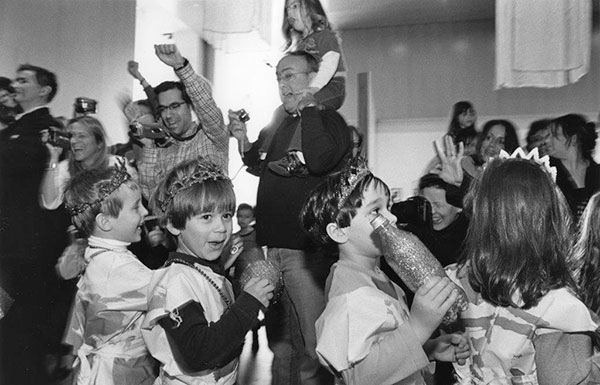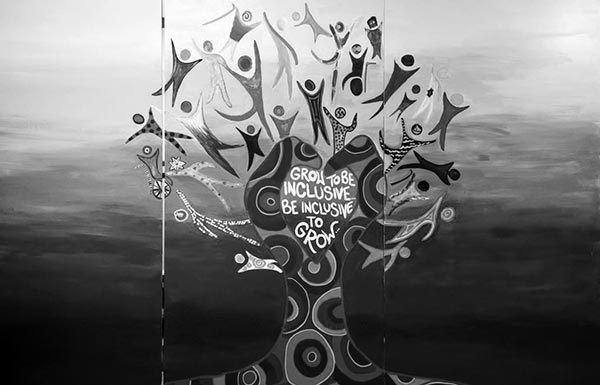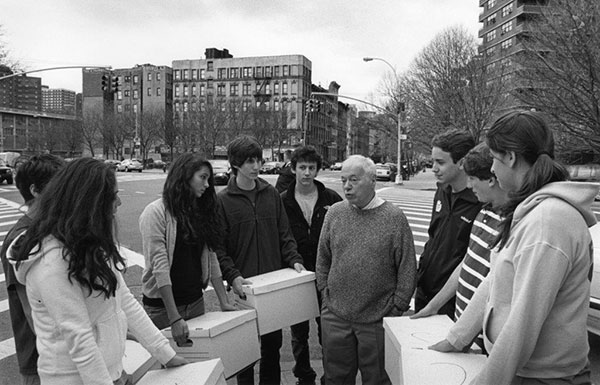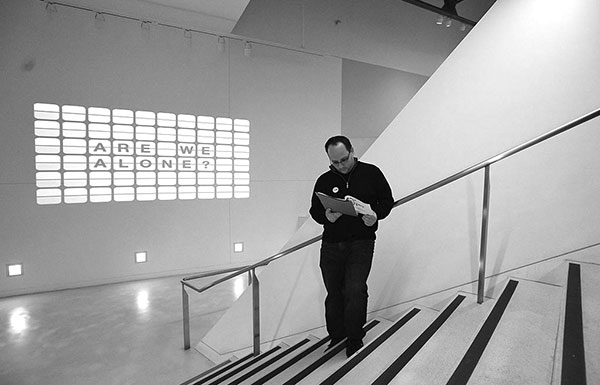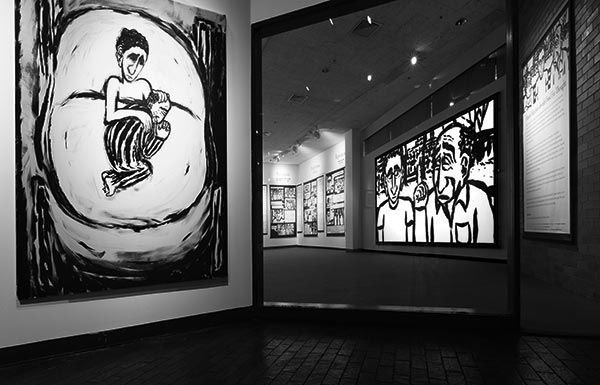
ARTICLE Expanding the Canon with Diverse Jewish Narratives
Following the tragic shootings at the Tree of Life – Or L’Simcha Congregation in Pittsburgh, PA in 2018 that took the lives of 11 people, and the hostage crisis at Congregation Beth Israel in Colleyville, Texas in 2022, M.J. Kang felt she had to do something.
“I looked at my daughter, and I knew I wanted to be part of somehow bringing an understanding of who the Jewish people are, to the rest of the world, and in this way, maybe help alleviate antisemitism,” said the playwright, actor, and storyteller.
“I wanted to tell the stories of the Jewish people from a diverse perspective,” she said.
Kang was born in South Korea and immigrated with her family to Toronto as a young child. She grew up Catholic and converted to Judaism when she was pregnant with her first child. She is married to playwright Oren Safdie, and they agreed to raise their children with one religion, Judaism.
What was prompted as an act of solidarity with all Jewish people eventually became Kang’s play that is now in development through the “Expanding the Canon,” program, a new initiative of Theater J, the largest and most prominent professional Jewish theater in the U.S., based at the Edlavitch Jewish Community Center of Washington, DC. “Expanding the Canon,” is made possible in large part with a Signature grant from The Covenant Foundation.
In Kang’s play, she is exploring grief, following the recent death of her beloved father. Drawn to Jewish mysticism, she is also writing about being Korean and Jewish and the joys of being both; “the family we are born into and the family we create – how we can hold onto who we’ve become and where we can land spiritually,” she explains. In the play, she honors her late father, who was born Protestant and converted to Catholicism.
“For me, it’s really wonderful to feel included in this community,” she says. “It’s also important that we are different ages and can learn from different generations. To feel like we are one and to recognize our differences.”
“I want people to know that being Jewish is not one stereotypical thing,” she added.
The goal of the program, as Hayley Finn, artistic director of Theatre J explains, is to encourage playwrights of diverse Jewish backgrounds to develop Jewish plays that highlight non-white Jewish narratives, and share them with audiences. Finn and her colleagues recognize that there has been a dearth of quality theatrical works that tell the stories of Jews of Color. As such, the program is designed for writers who are Jewish but do not identify as white or Ashkenazi.
Finn, who serves as Project Director for the Covenant grant, joined Theater J earlier this year when the program was already underway. In fact, she says that “Expanding the Canon” was one of the things that attracted her to the position.
“It’s right in line with my work in supporting playwrights and expanding who gets seen on the stage,” she says. ‘It’s important to show the multiplicity of Jewish identity, how it continues to evolve, and to support Jewish stories and characters that are unrepresented.”
Finn, who has worked with Jewish and non-Jewish playwrights over her distinguished 25-year career, has developed more than 1,000 plays, many of them of Jewish interest.
Previously, she was the associate artistic director at Playwrights’ Center in Minneapolis.
Seven award-winning playwrights were selected in 2022 for the first cohort of “Expanding the Canon.” They hail from cities across the United States, and several are also actors, directors, and theater artists of all kinds. One is also a rabbi. And, another has not yet written a play, but is a novelist and librettist who teaches classics at Howard University. More than 80 people applied to be part of the inaugural program.
“The program creates a Jewish space that’s not predominantly a white space,” Finn said. “It’s not something these writers have experienced before. We give them access to ways of thinking about Judaism they may not have been exposed to.”
Playwright Zachary Ezer chose to research the black and Jewish communities of Louisville, Kentucky, after discovering a little known strike in 1908, by an organized labor union of non-Jewish workers, informally referred to as the “Shabbos goys.” Based on his research, Ezer is now creating an original play, The Negotiating Committee, around that strike. He is employing a technique known as critical fabulation -- imagining gaps in the historical record after relying on facts as much as possible.
Ezer, who describes himself as both black and Jewish, says that when he heard of “Expanding the Canon,” “it seemed as if the Jewish theater was specifically searching for Jewish playwrights that looked like me,” and thus he decided to apply.
Each playwright is granted a $10,000 commission to develop a new play, and becomes part of a cohort that meets with Jewish teachers for a variety of professional development opportunities.
Over the course of the three-year program, each playwright will have access to a $5,000 developmental budget for additional research, classes, or work with a dramaturg. Once the participants submit drafts of their plays, they will receive feedback which will help them to further develop their works and, when they are ready, readings of the plays as well. Finn says that Theater J will consider staging some of the plays and will use its extensive theater contacts, nationally and internationally, to stage others.
Finn hopes to workshop three of the plays from the cohort during this spring and, depending on the writers’ interests, they may be open to the public. She looks forward to mounting some full productions in the following seasons as well.
In August of 2022, the playwrights participated in an immersive meeting in Washington, DC in August 2022 with a beit midrash (learning space) facilitated by Sabrina Sojourner. A practicing theater artist, Jewish educator, spiritual leader and Jew of Color, Sojourner arranged for teachers to meet with the group as a whole and for some individual meetings geared to particular interests. The teachers, storytellers, and practitioners include National Jewish Book Award-winning novelist Lori Banov Kaufmann, Franz Afraim Katzir, founder and director of SHIN DC-Sephardic Heritage International, and Rabbi Dr. Richard Ruth, a rabbi, psychologist and professor (who has since passed away.)
Since the retreat, the cohort has been meeting online to share ideas about their learning and respective projects.
“The narrowness that has been perceived of as Jewish in this country is problematic,” Sojourner reflected, as she spoke about her involvement in the program.
“Jews are primarily perceived as white, and there is a history as to why,” she added. Unfortunately, that road has cleaved many divisions. As a result, we don’t have all of the stories. Now, we are all looking forward to the stories these playwrights will bring to the larger Jewish community and to the world.”
By Sandee Brawarsky

